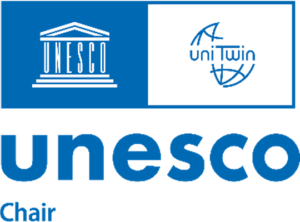“Promissory agendas, national reactions: Global governance, knowledge equity, and democracy”
With just a few years left to shape a new international education agenda, the UNESCO Chair series in Comparative Education Policy invites scholars, decision-makers, and public intellectuals from the Global South to share their analyses of the Sustainable Development Goals (SDGs) and broader international agendas. There is an emerging body of literature in political science, international relations, and comparative policy studies on the promissory legitimacy of global actors (Beckert, 2020; Berten & Kranke, 2022; Robertson & Beech, 2023). How do international and national actors navigate uncertain futures, shape national developments towards their pre-defined future, or correct wrong projections that have negatively impacted present policy decisions? Perhaps more than any other public sector, education is expected to prepare individuals for the future. Even international organizations have made it their project to specify that future in terms of 21st century skills (OECD) or human capital needed for economic productivity (World Bank), education ultimately suffers from a technology deficit. The deficit becomes glaring If we conceive of technology as a device that connects inputs with outcomes because educating subjects in the present (input) for a predefined, internationally agreed upon future (outcomes) is in and of itself counterintuitive. Therefore, education lends itself for reflecting on the promissory legitimacy of international organizations. These are only a few questions that this new area of research is able to address and thereby our understanding of tools of global governance.
This series, organized by the UNESCO Chair in Comparative Education Policy and NORRAG, will navigate the tensions and inequalities inherent in the global aid architecture and discuss the gap between national priorities and global scripts in international development.
The series will welcome three visiting professors during the fall semester 2024 at the Geneva Graduate Institute. For each session, a public lecture will be held from 12:30pm to 2:00pm in S5, Maison de la Paix, and online on the first day. This will be followed by an open café at the Fab the next day at 10:00am. Use this form to register and send your questions.
The first session, on October 7th, 2024, will welcome Rasha Sharaf, a Professor of International and Comparative Education and Education Administration at Helwan University in Egypt. She serves as the KIX/EMAP Knowledge Lead for South Asia, the Middle East, and North Africa subregion, as well as the NORRAG Regional Editor for the Arabic special issues. Her research interest is in planning of education systems, policy studies and development. Sharaf has consulted and advised in over 15 countries in MENA and South Asia.
Interpretation in Arabic and Russian will be available for online participants.
Co-host:

Co-sponsors:





